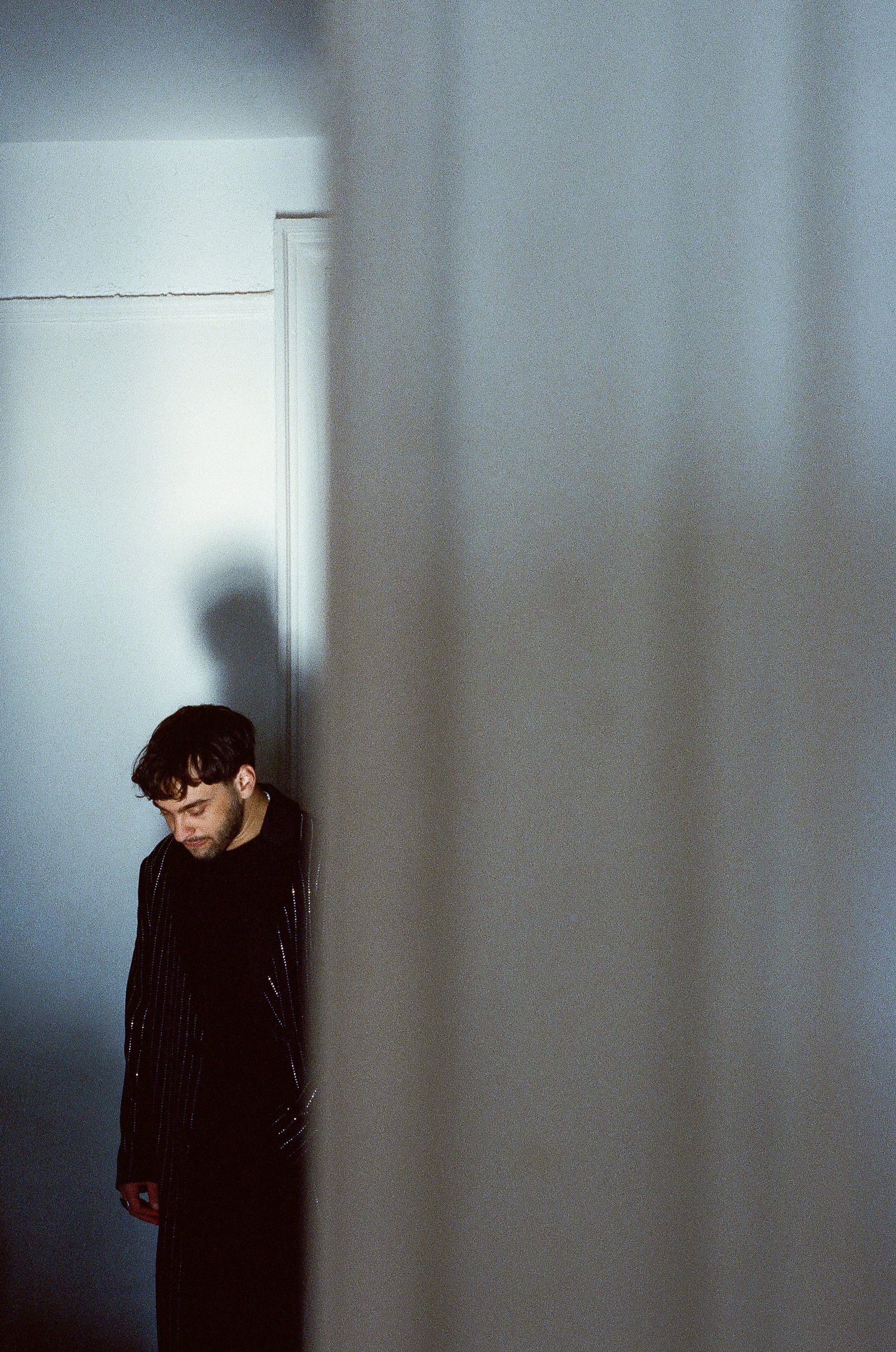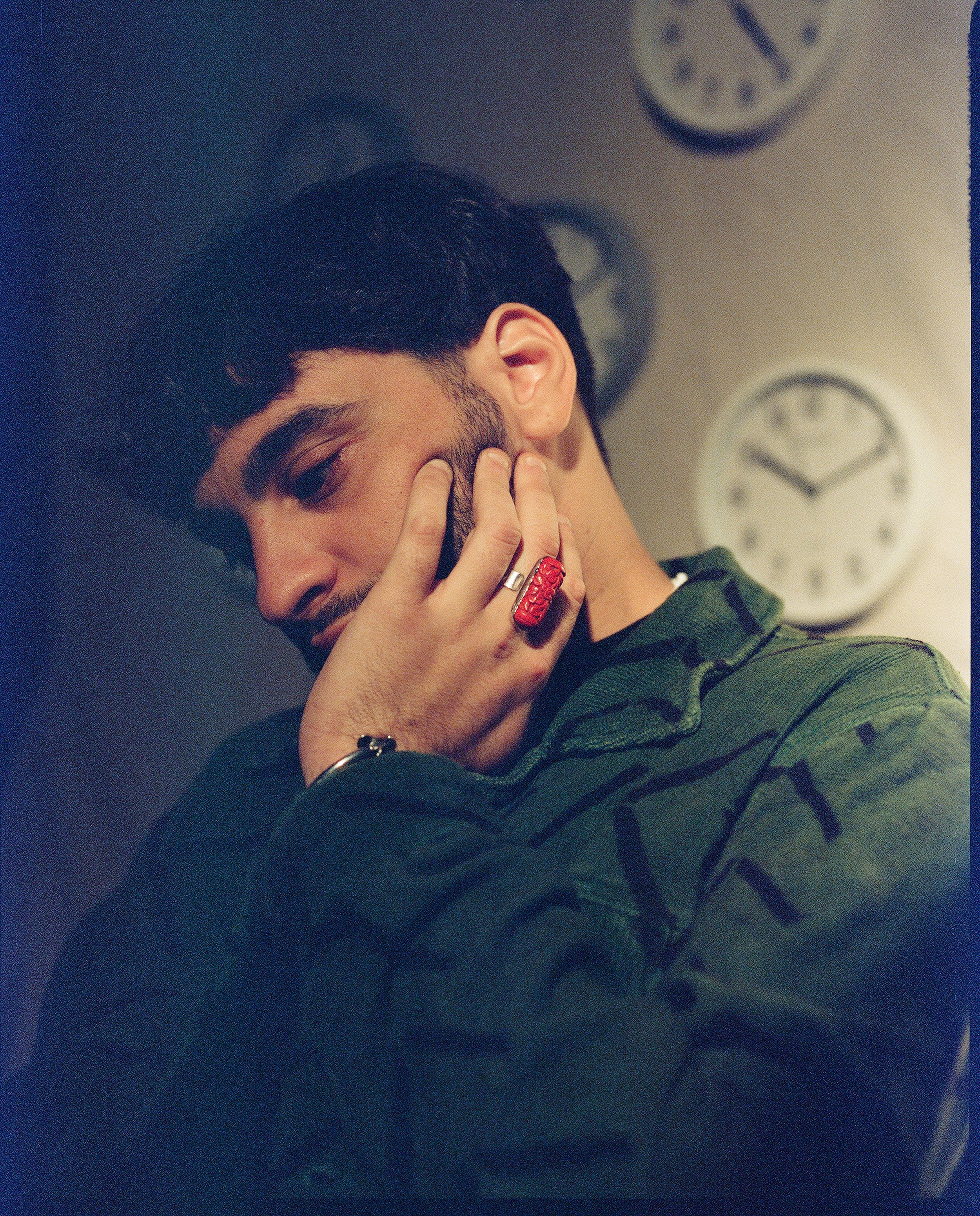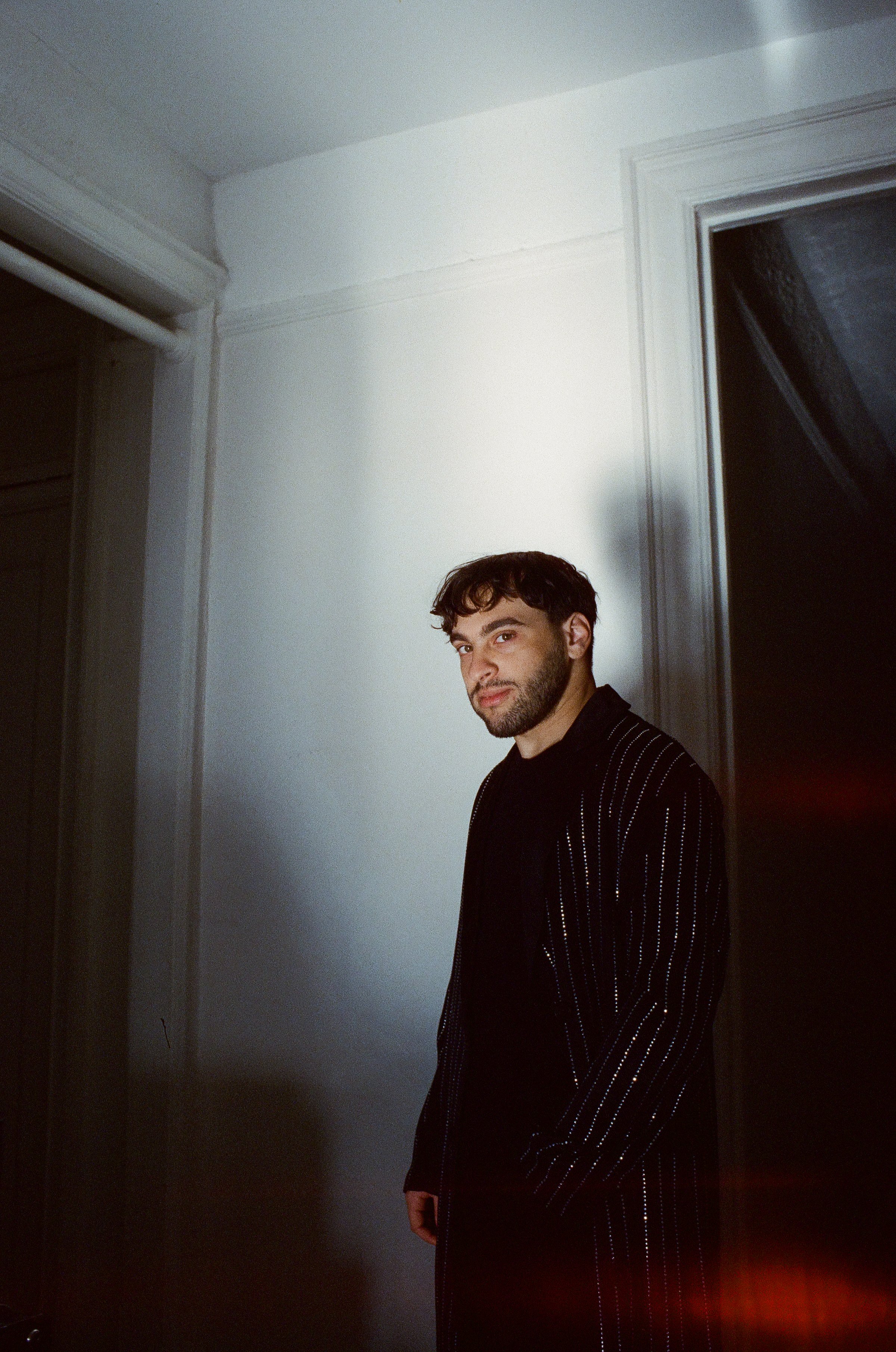
Samora Pinderhughes
Samora Pinderhughes is a composer, pianist, vocalist, filmmaker, and multidisciplinary artist known for striking intimacy and carefully crafted, radically honest lyrics alongside high-level musicianship. He is also known for using his music to examine sociopolitical issues and fight for change and works in the tradition of the black surrealists, those who bend word, sound, and image towards the causes of revolution. Pinderhughes is a prison abolitionist and an advocate for process over product. His music is renowned for its emotionality, its honesty about difficult and vulnerable topics, and its careful details in word and sound.
As an artist, Pinderhughes’ goal is that people will LIVE DIFFERENTLY after experiencing what he makes—that it will affect how they think, how they act, how they relate to others, how they consider their daily relationships to their country and their world.
Pinderhughes has collaborated with artists across boundaries and scenes including Herbie Hancock, Common, Glenn Ligon, Sara Bareilles, Daveed Diggs, Titus Kaphar, and Lalah Hathaway. He is featured as a composer, lyricist, vocalist, and pianist on the albums August Greene and Let Love with Common, Robert Glasper, and Karriem Riggins. He has been commissioned by Carnegie Hall, the Sundance Film Festival, and the Kennedy Center, and toured internationally with artists including Branford Marsalis, Christian Scott, and Emily King.
Born and raised in the Bay Area, Pinderhughes began playing music at two years old and started piano at seven. His life changed forever when he was granted entry into the Young Musicians Choral Orchestra program, a free program for Bay Area youth, where he first studied harmony, learned about jazz, and began composing. He also studied music in Cuba for the time he and his family lived there in his youth. After graduating high school, Samora moved to New York to study at Juilliard under master teachers Kenny Barron and Kendall Briggs. It was also during this time that he met his primary artistic mentor, Anna Deavere Smith.
This started Pinderhughes down the path of writing lyrics and combining film and theatre with his music in radical new ways. His first major political music project was The Transformations Suite, combining music, theatre, and poetry to examine the radical history of resistance within the communities of the African Diaspora, co-written by Christophe Abiel and Jeremie Harris. This was followed by The Black Spring EP in 2020, produced with Jack DeBoe, and songs including Inertia, Process, No Plce, and Star-Blooded Work Song. He is also the creator of The Healing Project, a massive multidisciplinary project that examines trauma & healing from incarceration, detention, and structural violence, and which will debut in 2022 as an exhibition and a VR digital archive; and his forthcoming album GRIEF.
Pinderhughes is the first-ever Art for Justice + Soros Justice Fellow and a recipient of Chamber Music America’s 2020 Visionary Award. He has also been designated as a Creative Capital awardee, a Joe’s Pub / Public Theater NYC Artist-in-Residence, and a Sundance Composers Lab fellow. He is a graduate of The Juilliard School and is currently getting his Ph.D. at Harvard University in the Creative Practice and Critical Inquiry program under the direction of Vijay Iyer.
Pinderhughes also scored the award-winning documentary Whose Streets? and the Field of Vision film Concussion Protocol. The short film for his song Process, directed with Christian Padron, won 2021’s Best Experimental Film award at Blackstar Film Festival. He is a member of Blackout for Human Rights, the arts & social justice collective founded by Ryan Coogler and Ava DuVernay, and was musical director for their #MLKNow and #JusticeForFlint events.
Releases









